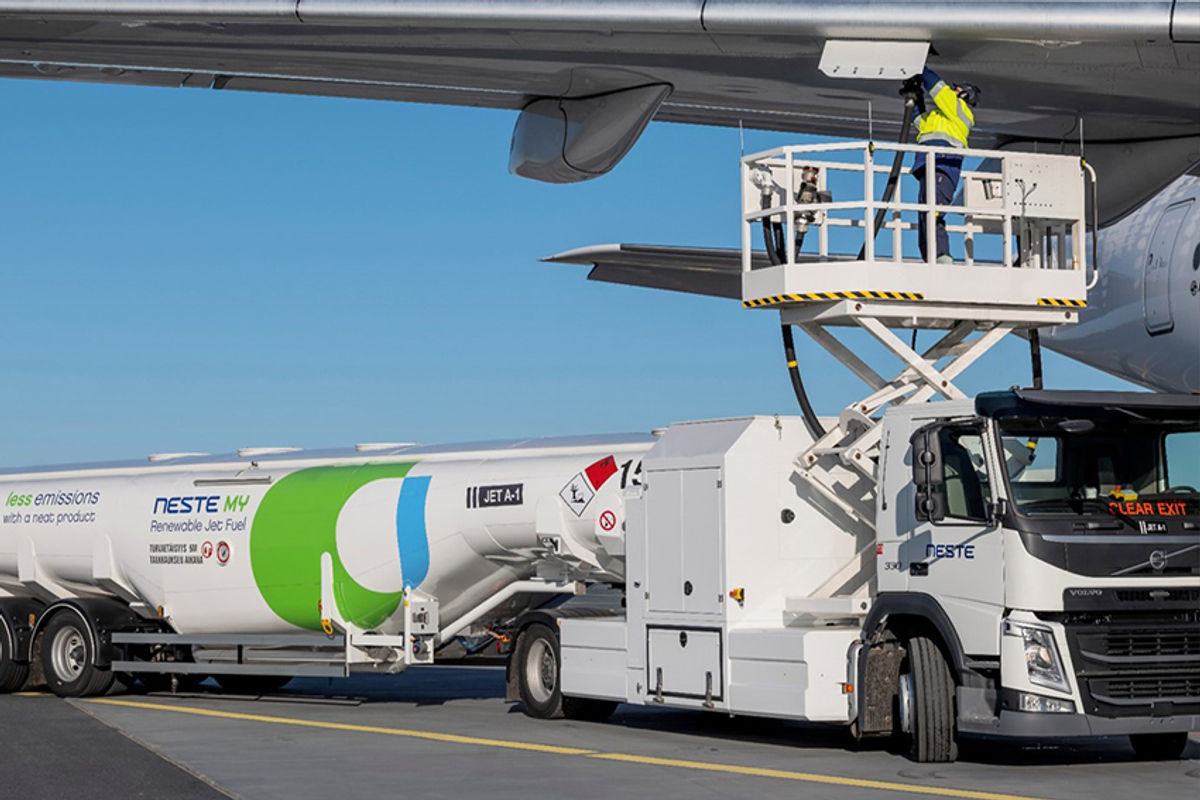UK SAF mandate comes into force

The UK’s Sustainable Aviation Fuel (SAF) Mandate officially came into force on Wednesday (1 January 2025), which will see “at least 2 per cent” of the alternative fuel used in all flights departing from the country this year.
The move follows the first meeting of the UK’s “refreshed” Jet Zero Taskforce, with the new law stipulating a year-on-year increase in the percentage of SAF used in flights, which is set to reach 10 per cent by 2030 and 22 per cent by 2040.
The UK government said its “ambitious but achievable targets” will see around 1.2 million tonnes of alternative fuel supplied to the local aviation industry each year by 2030.
UK minister for aviation Mike Kane said: “With thousands of jobs supporting the UK SAF industry and flying becoming [more] popular than ever, the mandate will help deliver our Plan for Change helping to grow the economy and giving people the freedom to travel in a more sustainable way.”
Aviation industry groups have welcomed the SAF mandate, with Airlines UK CEO Tim Alderslade describing it as “a powerful and practical tool for driving down aviation carbon emissions and a clear signal that the industry is fully committed to a net zero future”.
Concerns were also expressed regarding incentives to help cut costs and the need to expand eligible feedstocks to accelerate domestic SAF production.
“Our priority is ensuring airlines have access to the increasing volumes of SAF required to meet the mandate as global demand soars, at the most competitive price possible for consumers,” Alderslade said.
In response, the UK government has confirmed it will introduce a “revenue certainty mechanism” for SAF producers in order to attract investment in local plants and boost supply.
The Department for Transport, in a statement, said further consultation on the revenue certainty mechanism will be launched “early this year”.
The EU is also set to introduce its own “blending mandate” for the use of alternative aviation fuels in 2025. It will start at 2 per cent this year and rise to 6 per cent in 2030, with the ultimate target of reaching 70 per cent SAF use by 2050.
Related
Why investing in women is a vital next step for…
Get Nadine White's Race Report newsletter for a fresh perspective on the week's newsGet our free newsletter from The Independent's Race CorrespondentGet our fre
Business secretary signals major shift on electric car policy to…
In a determined effort to retain Nissan’s manufacturing presence in Britain, Business Secretary Jonathan Reynolds has vowed to implement “substantial c
Joint Statement: Business Secretary and Fujitsu Services Ltd
Business and Trade Secretary Jonathan Reynolds today (Friday 7 March) met chiefs for Fujitsu in Tokyo to begin talks over the cost of redress for victims of th
UK foreign secretary backs multilateral defence funding for Europe
UK foreign secretary David Lammy has said that a new multilateral fund will be needed to secure Europe’s defence as he confirmed that Britain is “open to”













